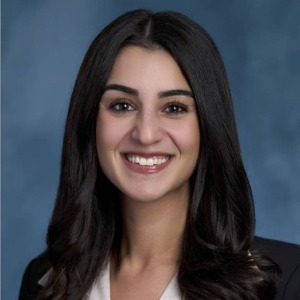Title : Clinical and ethical challenges in the acute management of a nonverbal adult with cerebral palsy and complex medical comorbidities
Abstract:
Cerebral palsy (CP) is the most common motor disorder of childhood and increasingly recognized as a condition requiring lifelong care. Individuals with severe CP often face coexisting visual, gastrointestinal, and cognitive impairments, yet adult presentations remain underrepresented in neurology and internal medicine literature. As life expectancy increases, neurologists play a critical role in navigating both chronic disability and acute care challenges.
This case highlights the intersection of neurodevelopmental disability, communication barriers, and complex medical decision-making in the acute care of a 29-year-old nonverbal, blind female with spastic cerebral palsy. Her neurologic impairments—including nonverbal status, blindness, and cognitive disability—were longstanding consequences of prematurity and CP, significantly shaping her healthcare trajectory and limiting her ability to participate in her own care. Over the last two years, the patient has been hospitalized on average twice per month for recurrent episodes of nausea, vomiting, and associated gastrointestinal complications, which have been managed similarly each time.
The patient presented to the emergency department with nausea and vomiting refractory to home antiemetics. Due to her profound neurologic deficits, obtaining a thorough history was challenging and relied heavily on the electronic medical record (EMR), group home staff, and prior hospital encounters. Her past medical history included spastic cerebral palsy (1996), blindness and nonverbal status (1996), gastric and intestinal volvulus (2014, 2018), glaucoma, inappropriate sinus tachycardia, influenza A (2020), Raynaud’s disease, and retinopathy of prematurity (1996). The neurologic underpinnings of her disability influenced both the diagnostic approach and care coordination in the acute setting.
Imaging of the abdomen and pelvis revealed findings concerning for gastric outlet obstruction with internal hernia, volvulus, and possible malrotation, along with mesenteric twisting and edema in the right upper quadrant. There was also evidence of high-grade caliber narrowing of the mid-transverse colon and dilated small bowel loops. These findings, in conjunction with her complex surgical history and neurologic vulnerability, prompted urgent surgical consultation.
Initial evaluation revealed stable vital signs and lab findings consistent with mild metabolic alkalosis. Given her baseline neurologic impairment, the patient lacked decision-making capacity. Her care required coordinated input from general surgery, gastroenterology, family medicine, and palliative care. Further complicating care, her dual guardianship—shared with a mother living in Georgia without full legal authority—necessitated an ethics consultation and multidisciplinary dialogue regarding her code status and long-term care preferences.
The patient was ultimately managed conservatively with nasogastric decompression and bowel rest, leading to clinical improvement and resumption of oral intake. She was discharged back to her group home in stable condition.
This case underscores the complex care considerations in adults with cerebral palsy and severe neurologic disability. It highlights the essential role of neurologists in establishing baseline function, facilitating ethical and multidisciplinary decision-making, and ensuring continuity of care. As more individuals with CP transition to adult care systems, there is a growing need for neurologists to advocate for comprehensive, individualized care that addresses both chronic neurologic impairment and acute medical needs.



